2025 Annual ANCDS Scientific & Business Meeting
"Technological Advances and Ethical Decisions in Neurogenic Communication Disorders"
Wednesday, November 19, 2025
Walter E. Washington Convention Center | Washington, DC
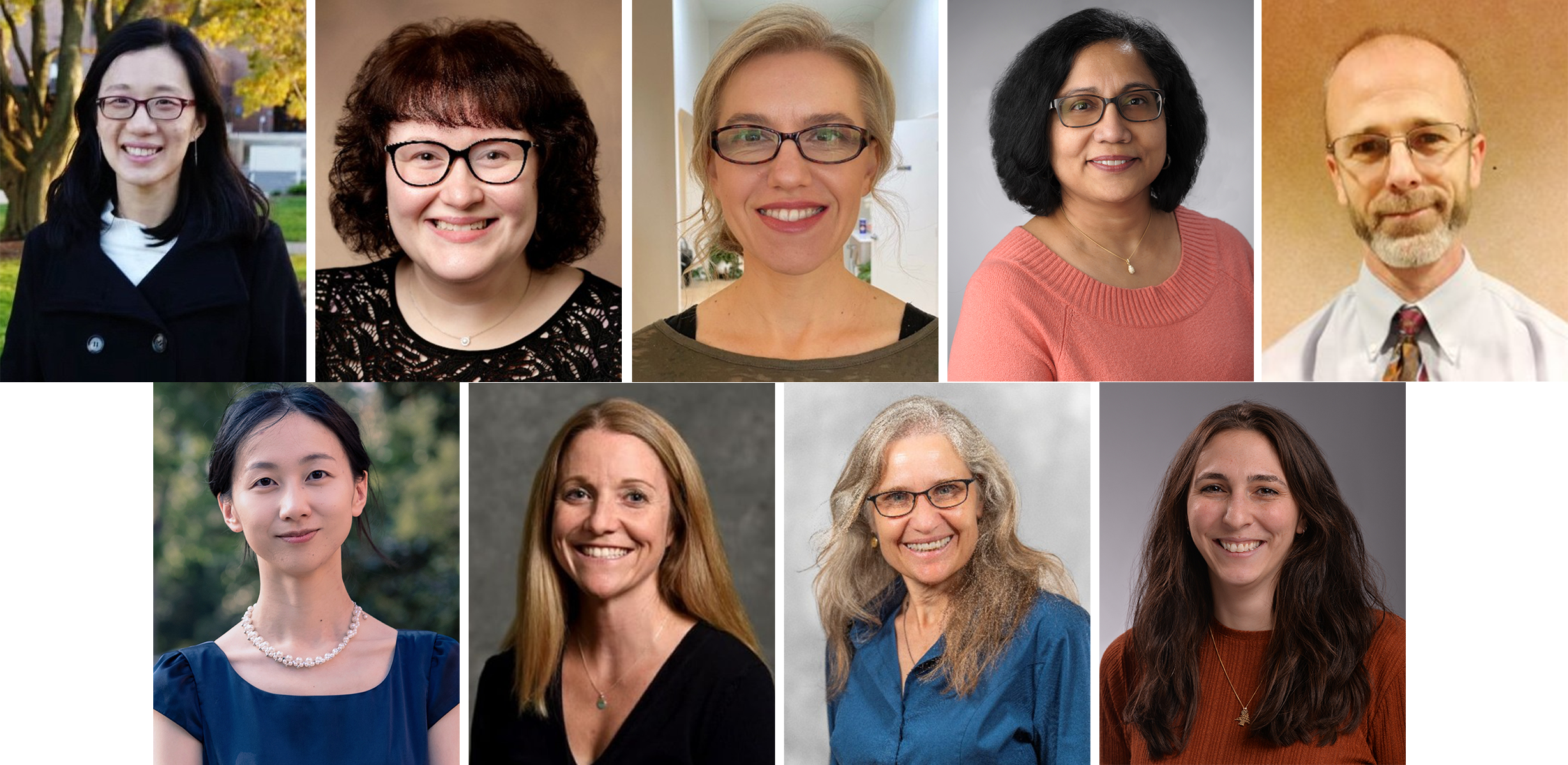
Schedule | Session Details | ASHA CEU Information | Registration | Business Meeting | Sponsorship
Schedule*
All times listed in EST.
| Time |
Topic and Speakers |
CEUs |
| 7:00 – 8:00 am |
Registration and Breakfast
|
| 8:00 – 9:00 am |
Annual Business Meeting (not eligible for CEUs)
Free and open to all members
|
N/A
|
| 9:00 – 10:00 am |
Lecture: Activities of Daily Living (ADL) Skills via Voice Assistive Technology (VAT) Alexa: A Hybrid Telehealth Programs for Community-Dwelling Adults with TBI and Aphasia
Yao Du, PhD, CCC-SLP
|
0.1
|
| 10:00 – 11:00 am |
Lecture: Transforming Clinical Workflows: Using AI and EHRs to Support Clinicians and Researchers
Kelly Fussman, MS, CCC-SLP
|
0.1 |
| 11:00 – 11:15 am |
Break
|
| 11:15 – 11:45 am |
Lecture: Transforming Clinical Workflows: Using AI and EHRs to Support Clinicians and Researchers (cont'd.)
Melissa Duff, PhD, CCC-SLP
|
0.05
|
| 11:45 am – 12:30 pm |
Lecture: Demystifying Myths and Case Presentations in Decision-Making for ANCDS Board Certification
ANCDS Board of Clinical Certification: Diana Petroi-Bock, PhD, CCC-SLP, BC-ANCDS, BCS-S; Ramani Voleti, MS, CCC-SLP, BC-ANCDS; and Michael Biel, CScD, CCC-SLP, BC-ANCDS
|
0.075
|
| 12:30 – 1:45 pm |
Lunch
|
| 1:45 – 2:45 pm |
Lecture: Exploring the Potential of LLMs in SLP Education and Clinical Care
Yalian Pei, PhD, CCC-SLP
|
0.1
|
| 2:45 – 3:30 pm |
ANCDS REDI Committee: Navigating the Digital Divide: Self-Regulation Strategies for Neurodiverse Students in Online Learning and Communication Environments (not eligible for CEUs)
Tahnee L. Wilder, PhD, CCC-SLP
|
N/A
|
| 3:30 – 3:45 pm |
Break
|
| 3:45 – 4:45 pm |
Lecture: Technology as a Life Participation Support for People with Aphasia
Sarah E. Wallace, PhD, CCC-SLP
|
0.1
|
| 4:45 – 5:30 pm |
Lecture: The State of the Literature on Language and Pragmatics in People with Right Hemisphere Brain Damage: Implications for Assessment and Treatment
ANCDS RHD Writing Committee: Margaret Lehman Blake, PhD, CCC-SLP; and Alexandra Zezinka Durfee, PhD, CCC-SLP
|
0.075
|
*All session, speaker, schedule, and CEU details are subject to change.
Session Details
9:00 – 10:00 am
Lecture: Activities of Daily Living (ADL) Skills via Voice Assistive Technology (VAT) Alexa: A Hybrid Telehealth Programs for Community-Dwelling Adults with TBI and Aphasia
Speaker:
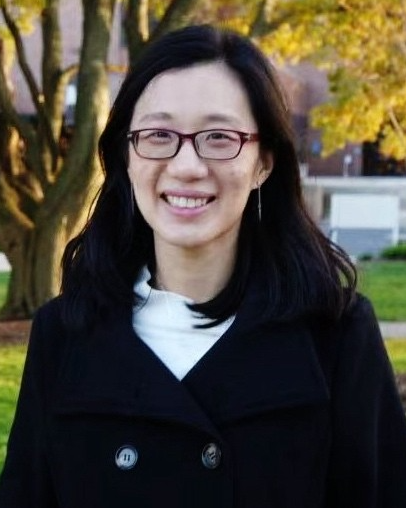
Yao Du, PhD, CCC-SLP
University of Southern California
Abstract: Voice assistive technology (VAT), such as Amazon Alexa, supports daily living activities (ADL) via spontaneous verbal exchanges. However, individuals with cognitive-communication disorders often face unique communication challenges due to speech recognition, sentence formulation, and complex discourse. This talk reviews a pilot study of three cohorts of TBI/aphasia patients who received training using VAT over a six-week telehealth training program focused on ADL skills. The presentation will utilize demonstration of hybrid training modalities (synchronous and asynchronous telehealth) and examine discourse patterns and communication strategies utilized (analyzed using micro- and macro-linguistic discourse analysis and utterance functions coding) during the training via group and 1:1 sessions. Preliminary findings suggest tailored training improves VAT use and ADL performance (particularly for younger adults and those with mild impairments), and further offered accessible cognitive-communication rehabilitation care for community-dwelling patients.
Objectives:
The learner will be able to:
- Describe at least one ADL domain that could be targeted using voice assistive technology.
- Discuss opportunities for utilizing different types of telehealth interventions working with community-dwelling adults with cognitive-communication disorders.
Speaker Bio: Yao Du is the clinical assistant professor in speech-language pathology at the Caruso Department of Otolaryngology-Head and Neck Surgery, Keck School of Medicine, University of Southern California. She currently teaches pediatric and technology-related courses (AAC, Telepractice), and mentors M.S. SLP students for capstone research. With a Ph.D. in Informatics, her research aims to utilize human-centered interaction design and artificial intelligence to enhance assistive technology (e.g., Amazon Alexa) and telehealth service delivery for individuals with communication disorders (e.g., TBI, PPA).
As a bilingual Mandarin-English speaking SLP licensed in California and New Jersey, she has clinical experience working with children and adults in various settings (e.g., schools, clinics, hospitals, long-term care facilities, home health, and telehealth). She also has industry consulting experiences with educational and digital therapeutic technology companies, where she served as the lead researcher for mobile health and wearable assistive technology to improve diagnostic screening and intervention for both children and adults with communication and cognitive disorders.
Speaker Disclosures:
Financial: Dr. Du receives full time salary from the University of Southern California and received an honorarium for this ANCDS lecture.
Non-Financial: Dr. Du is a member of the American Speech Language Hearing Association (ASHA).
CEUs: Intermediate Level, 0.1 ASHA CEUs
Return to top.
10:00 – 11:00 am
Lecture: Transforming Clinical Workflows: Using AI and EHRs to Support Clinicians and Researchers
Speaker:

Kelly Fussman, MS, CCC-SLP
Vanderbilt University Medical Center
Abstract: This session explores how artificial intelligence (AI) and electronic health record (EHR) tools can reduce documentation burdens for speech-language pathologists (SLPs) and researchers. Learn how AI-powered note generation streamlines workflows, improves accuracy, and enhances clinician satisfaction. Discover real-world applications of AI to optimize care, boost efficiency, and support better patient outcomes.
Objectives:
The learner will be able to:
- Identify at least two real-world applications of AI in speech-language pathology to optimize care and improve clinician satisfaction.
- Apply AI tools to their own clinical workflows.
Speaker Bio: Kelly Fussman, MS, CCC-SLP, is a speech-language pathologist with six years of clinical experience in an outpatient neuro-rehabilitation setting. Her former role as a clinic-based SLP and Epic Clinician Champion evolved into her current full-time position in clinical informatics for Vanderbilt University Medical Center. In this role, Kelly primarily supports SLPs, audiologists, and otolaryngologists with workflow optimization within Vanderbilt University Medical Center's electronic health record (EHR). She also leads VUMC's Clinician Champion program, a group of 100+ clinicians across the enterprise dedicated to promoting and optimizing technology in clinical care. Kelly has a particular interest in leveraging technology in clinical workflows to promote clinician well-being and patient outcomes.
Speaker Disclosures:
Financial: Kelly receives a salary from VUMC. She also received an honorarium for this talk.
Non-Financial: Kelly is the ANCDS CE Administrator, VUMC's Clinician Champion program lead, and an ASHA member.
CEUs: Intermediate Level, 0.15 ASHA CEUs [including portion after break]
Return to top.
11:15 – 11:45 am
Lecture: Transforming Clinical Workflows: Using AI and EHRs to Support Clinicians and Researchers (cont'd.)
Speaker:
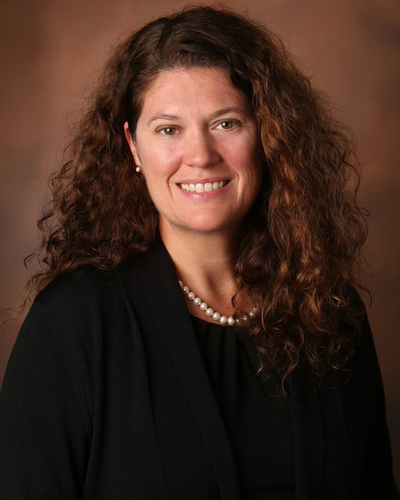
Melissa Duff, PhD, CCC-SLP
Vanderbilt University Medical Center
Abstract: This session explores how artificial intelligence (AI) and electronic health record (EHR) tools can reduce documentation burdens for speech-language pathologists (SLPs) and researchers. Learn how AI-powered note generation streamlines workflows, improves accuracy, and enhances clinician satisfaction. Discover real-world applications of AI to optimize care, boost efficiency, and support better patient outcomes.
Objectives:
The learner will be able to:
- Identify at least two real-world applications of AI in speech-language pathology to optimize care and improve clinician satisfaction.
- Apply AI tools to their own clinical workflows.
Speaker Bio: Dr. Melissa C. Duff is the Vicki and Thomas Flood Professor and Chair in the Department of Hearing and Speech Sciences at Vanderbilt University Medical Center. Her research focuses on the role of hippocampal-dependent memory in language processing, communication, and social interaction. She also conducts work in the area of acquired brain injury and is the founder and director of the Vanderbilt Brain Injury Patient Registry. Dr. Duff has an established record of research funding from the National Institutes of Health, and is the author of more than 160 research publications. She was named Fellow of the American Speech-Language-Hearing Association in 2018.
Speaker Disclosures:
Financial: Dr. Duff receives a salary from VUMC and grant funding from NIH.
Non-Financial: Dr. Duff has no non-financial disclosures to report.
CEUs: Intermediate Level, 0.15 ASHA CEUs [including portion before break]
Return to top.
11:45 am – 12:30 pm
Lecture: Demystifying Myths and Case Presentations in Decision-Making for ANCDS Board Certification
Speakers:
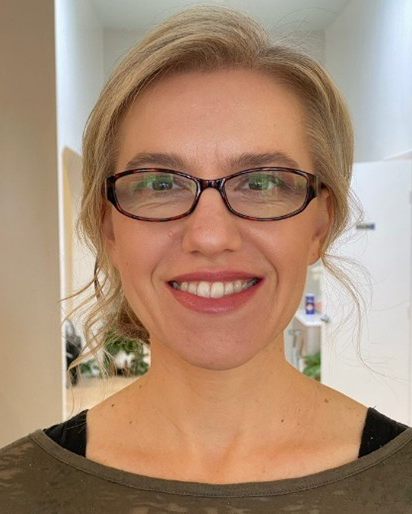
Diana Petroi-Bock, PhD, CCC-SLP, BC-ANCDS, BCS-S
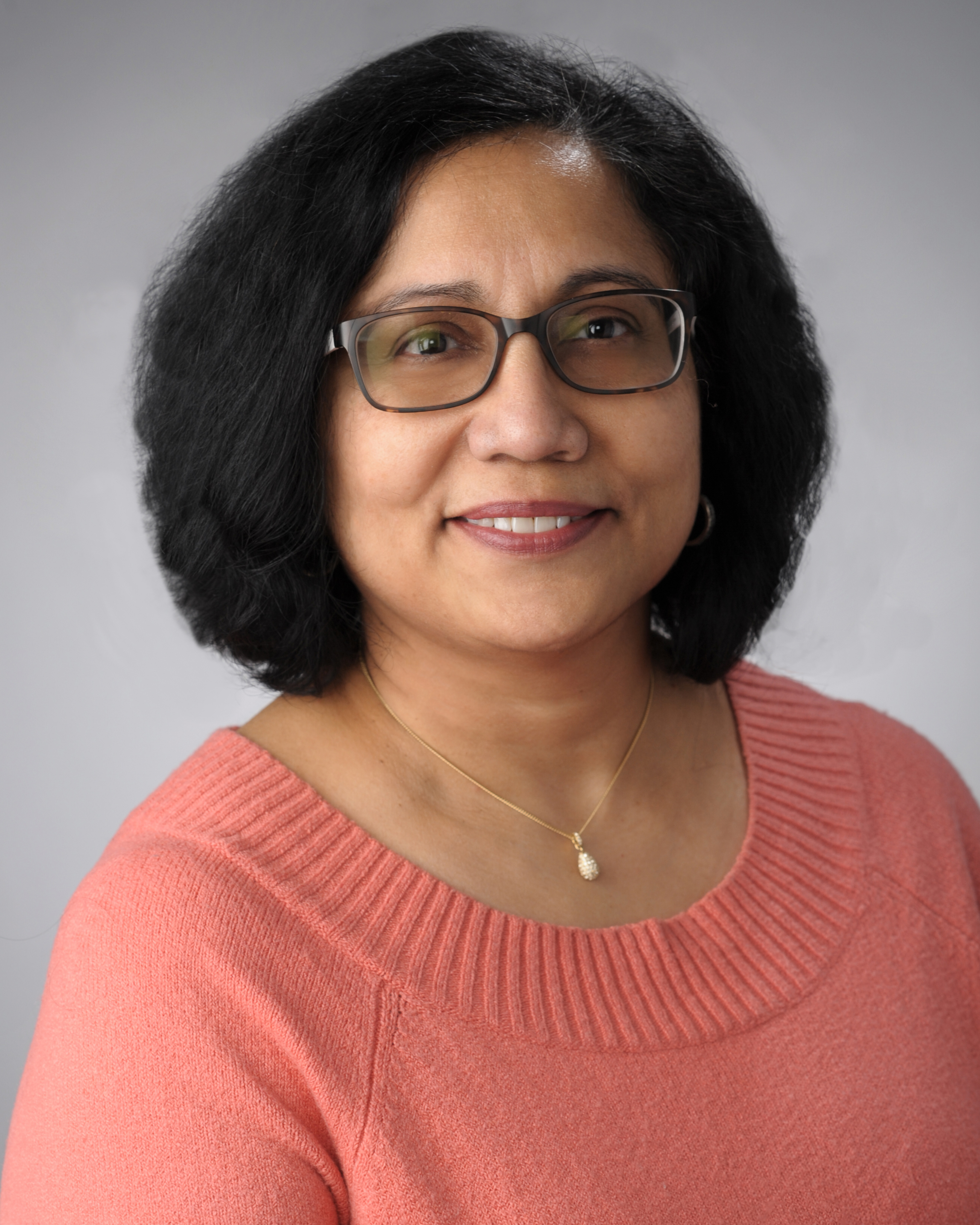
Ramani Voleti, MS, CCC-SLP, BC-ANCDS
Syracuse University
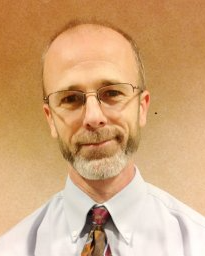
Michael Biel, CScD, CCC-SLP, BC-ANCDS
California State University, Northridge
Abstract: One of the goals of ANCDS is to provide board certification (BC) opportunities to support practitioners serving individuals with neurologic communication disorders. In addition to joining ANCDS, obtaining BC is essential for the sustainability and longevity of the Academy. As such, this presentation highlights motivators and barriers to pursuing BC based on recent survey results and provides lessons learned from cases submitted to demonstrate the value of BC.
Objectives:
The learner will be able to:
- List two to three motivators and barriers to pursuing board certification.
- Describe two to three benefits of board certification.
- State two to three implications and/or lessons learned from the cases presented.
Speaker Bios: Dr. Petroi-Bock is a clinician-researcher with areas of expertise in neurologically-based motor speech, language, and swallowing disorders. She also sees patients with vocal pathologies and head/neck cancer. She is board certified in swallowing and neurologic communication disorders. Having worked in medical and university settings, her clinical and research interests include differential diagnosis, examining co-occurring disorders, and interdisciplinary collaboration for teaching, research, and high-quality care. She completed a postdoctoral fellowship at Mayo Clinic (Rochester, MN).
Ramani Voleti, MS, CCC-SLP, BC-ANCDS, is a teaching professor and speech language pathologist at the Gebbie Clinic at Syracuse University. Her clinical and research interests include acquired neurogenic speech/language disorders, dysphagia, and voice disorders in adults. She teaches CSD intro courses, and courses in neurogenic communication disorders and professional issues in medical settings. She is board certified in neurogenic communication disorders in adults.
Dr. Michael Biel is a professor of Communication Disorders and Sciences at California State University, Northridge and maintains a private practice specializing in the rehabilitation of persons with aphasia. Dr. Biel's research interests focus on understanding and promoting motivation during rehabilitation.
Speaker Disclosures:
Diana Petroi-Bock
Financial: Dr. Petroi-Bock has no financial disclosures to report.
Non-Financial: Dr. Petroi-Bock is the current Advisory Chair and past Chair of ANCDS's Board of Clinical Certification (BCC).
Ramani Voleti
Financial: Ramani has no financial disclosures to report.
Non-Financial: Ramani is a Member-at-Large of the ANCDS Executive Board and past chair of ANCDS's Board of Clinical Certification (BCC).
Michael Biel
Financial: Dr. Biel has no financial disclosures to report.
Non-Financial: Dr. Biel has no non-financial disclosures to report.
CEUs: Intermediate Level, 0.075 ASHA CEUs
Return to top.
1:45 – 2:45 pm
Lecture: Exploring the Potential of LLMs in SLP Education and Clinical Care
Speaker:
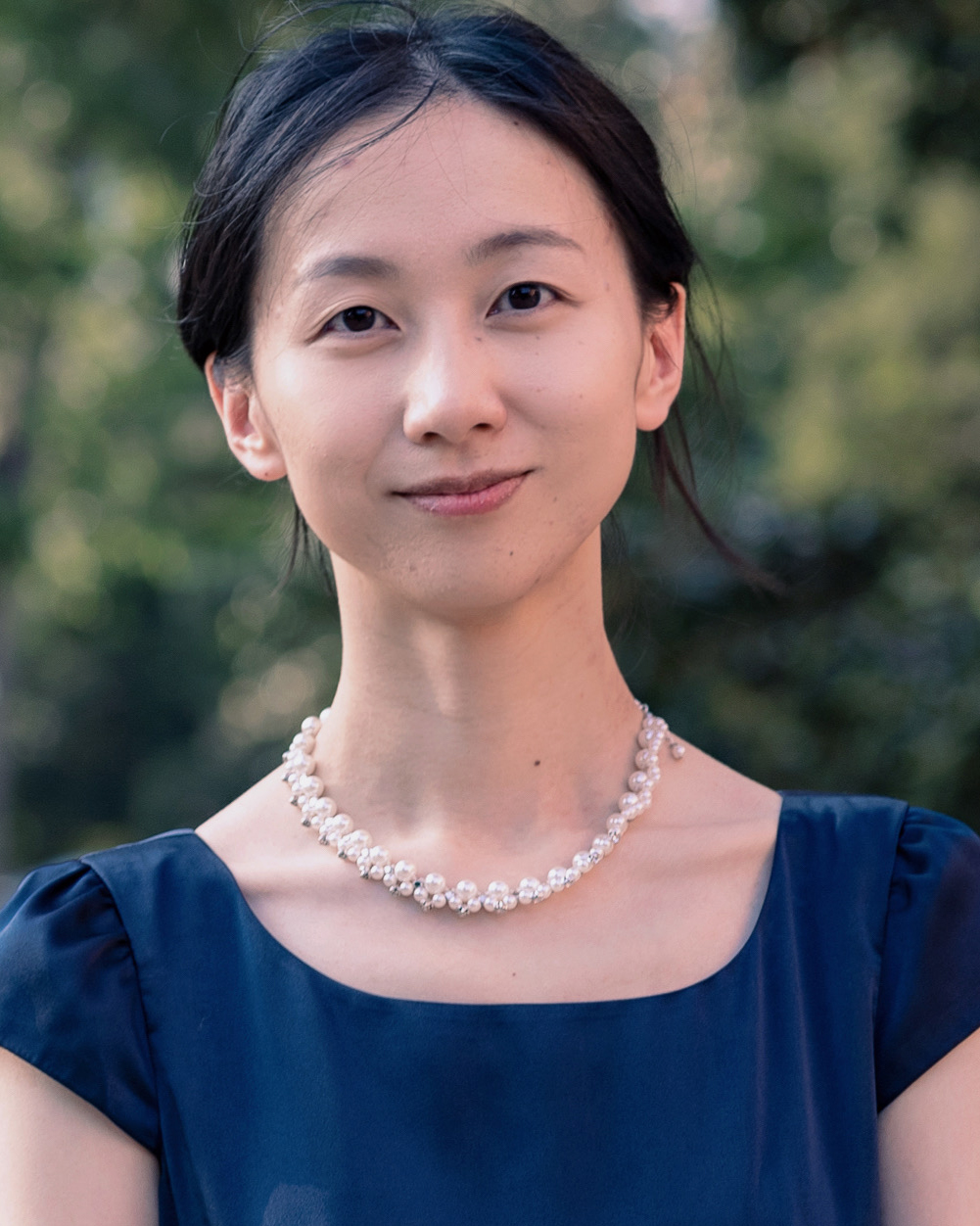
Yalian Pei, PhD, CCC-SLP
Syracuse University
Abstract: This presentation demonstrates case examples of how large language models can support education and clinical practice in speech-language pathology. The presenter will introduce prompt engineering, template systems, and fine-tuning techniques. Through these examples, the presentation aims to guide participants in identifying their own clinical and educational needs that could be addressed using large language models.
Objectives:
The learner will be able to:
- Evaluate and refine prompts for generating teaching materials related to neurogenic communication disorders.
- Experiment with existing fine-tuned large language models to automate discourse analysis.
- Identify and apply LLM-driven solutions to support specific clinical and educational tasks.
Speaker Bio: Yalian Pei, PhD, CCC-SLP, is an Assistant Professor at the Department of Communication Sciences and Disorders at Syracuse University. Her research focuses on characterizing challenges in communication mediated by computers and AI agents among individuals with brain injuries and exploring how emerging technologies can directly support real-time communication in daily life as well as improve the effectiveness and delivery of cognitive-communication treatments.
Speaker Disclosures:
Financial: Dr. Pei receives a salary from Syracuse University (SU) and grants from ASHA. Dr. Pei received an honorarium for this presentation from ANCDS.
Non-Financial: Dr. Pei has no non-financial disclosures to report.
CEUs: Intermediate Level, 0.1 ASHA CEUs
Return to top.
2:45 – 3:30 pm
ANCDS REDI Committee: Navigating the Digital Divide: Self-Regulation Strategies for Neurodiverse Students in Online Learning and Communication Environments
Speaker:
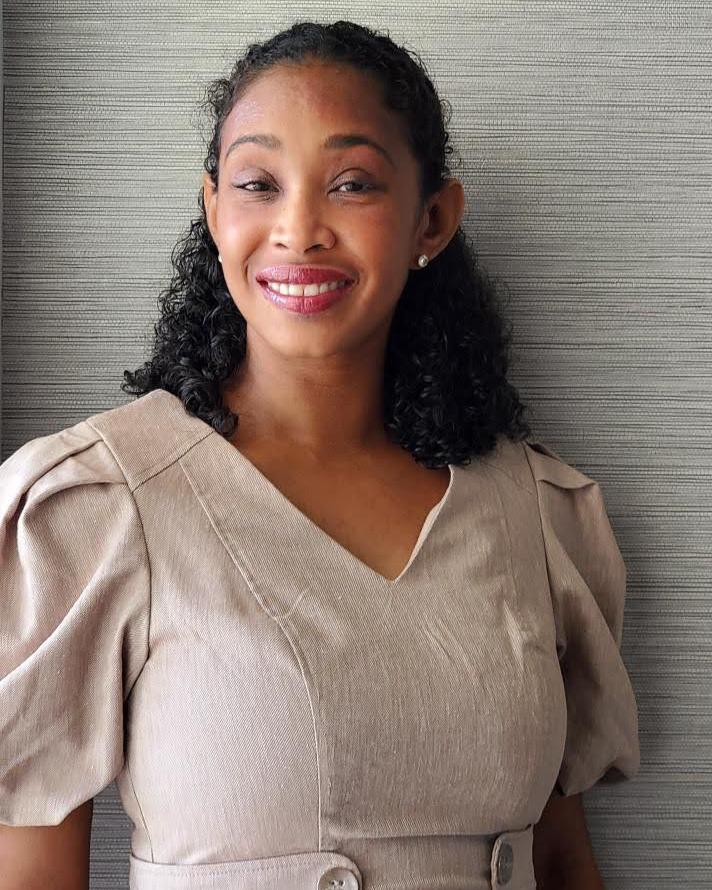
Tahnee L. Wilder, PhD, CCC-SLP
Howard University
Abstract: The rapid expansion of online learning and digital communication has fundamentally changed how students engage with educational content and interact with peers and instructors. For neurodiverse students, particularly those executive function differences, these virtual environments present unique challenges that can exacerbate existing inequities in educational outcomes. This presentation examines how students with ADHD navigate online communication contexts, drawing from research using eye-tracking technology and physiological measurements to understand self-regulation behaviors during digital interactions. Data reveals distinct patterns in attention allocation and cognitive processing, with implications for how we design online learning experiences.
Objectives:
The learner will be able to:
- Identify at least three self-regulation strategies that enhance neurodiverse students' success in online learning environments.
- Describe how physiological measurement tools can inform evidence-based interventions for virtual communication challenges.
- Apply principles of executive function support to improve equity and accessibility in digital learning contexts.
Speaker Bio: Tahnee L. Wilder, PhD, CCC-SLP, is an Assistant Professor in the Communication Sciences and Disorders Department at Howard University. She teaches graduate-level courses in neurogenic language disorders and advanced research methods. Dr. Wilder brings extensive clinical experience from diverse practice settings including skilled nursing facilities, private practice, and K-12 schools, providing her with a comprehensive understanding of communication disorders across the lifespan. Her research integrates educational neuroscience with artificial intelligence applications to support executive functioning and self-regulation in diverse populations with communication disorders.
Speaker Disclosures:
Financial: Coming soon!
Non-Financial: Coming soon!
CEUs: N/A
Return to top.
3:45 – 4:45 pm
Lecture: Technology as a Life Participation Support for People with Aphasia
Speaker:

Sarah E. Wallace, PhD, CCC-SLP
University of Pittsburgh
Abstract: This course will cover content related to compensatory use of technology in aphasia rehabilitation. Compensatory strategies related to returning to important life activities will be discussed.
Objectives:
The learner will be able to:
- List three ways text-to-speech can be modified to help support return to reading.
- Identify two potential benefits of using text-to-speech to support reading.
- Utilize two preferences stated by people with aphasia related to using technology to support reading.
Speaker Bio: Dr. Sarah E. Wallace is the Program Director for the Master's Degree Program in Speech-Language Pathology in the Department of Communication Science and Disorders. She is a clinical researcher, professor, and speech-language pathologist. She teaches courses related to neurogenic communication disorders, augmentative and alternative communication, and evidence-based practice. Broadly, her clinical research program seeks to improve compensatory strategies for adults with persistent communication impairments resulting from neurogenic disorders, thereby improving participation and quality of life. Much of her current research aims to optimize assistive technology strategies through systematic evaluation of technology features and to develop interventions that improve functional daily use. She is a proud member of Aphasia Access, ANCDS, ASHA, and related organizations that support people with communication disorders. She is currently the president of Aphasia Access and Editor in Chief for Topics in Language Disorders.
Speaker Disclosures:
Financial: Dr. Wallace receives a salary from the University of Pittsburgh and a stipend for her work for Topics in Language Disorders. Her current research is supported by funding from the Office for the Advancement of Telehealth, Health Resources and Services Administration, U.S. Department of Health and Human Services and the ASHFoundation.
Non-Financial: Dr. Wallace is a member of ASHA, ANCDS, and Aphasia Access.
CEUs: Intermediate Level, 0.1 ASHA CEUs
Return to top.
4:45 – 5:30 pm
Lecture: The State of the Literature on Language and Pragmatics in People with Right Hemisphere Brain Damage: Implications for Assessment and Treatment
Speakers:
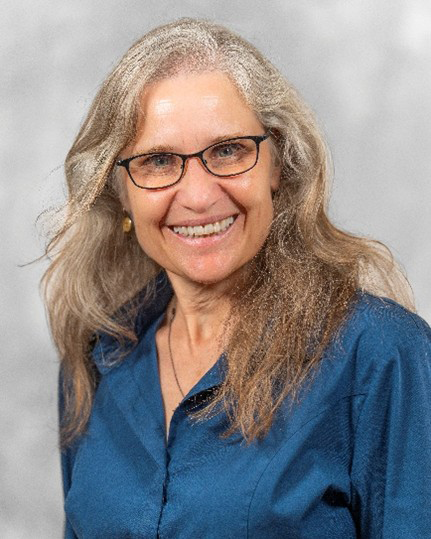
Margaret Lehman Blake, PhD, CCC-SLP
University of Houston
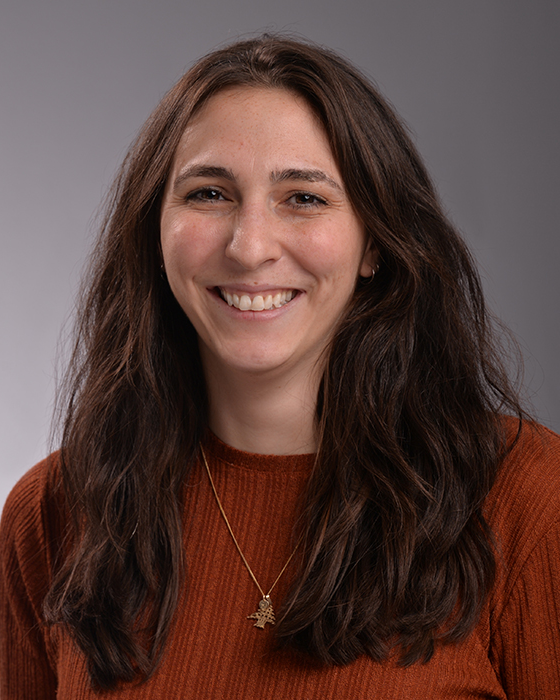
Alexandra Zezinka Durfee, PhD, CCC-SLP
Towson University
Abstract: The Right Hemisphere Brain Damage (RHD) Writing Group of the ANCDS Evidence-Based Clinical Research Committee will discuss our systematic review on language and pragmatics of people with RHD, focusing on the weaknesses of the RHD research, the ethical consequences of limited research and tools to assess/treat apragmatism, and how technological advances might be used to improve clinical practice.
Objectives:
The learner will be able to:
- Explain the findings of the recent systematic review of the language and pragmatics characteristics of people with RHD.
- Assess the current state of the literature on the language and pragmatics characteristics of people with RHD.
- Describe the potential impact of technology to improve assessment and treatment of people with RHD.
Speaker Bios: Margaret Lehman Blake is a Professor and Chair of the Department of Communication Sciences and Disorders at the University of Houston. Her research focuses on apragmatism and cognitive-communication disorders associated with right hemisphere brain damage with the goal of understanding the underlying deficits and developing treatments. She is the author of The Right Hemisphere and Disorders of Cognition and Communication, a founding member of the International Right Hemisphere Collaborative, and the co-creator of www.RightHemisphere.org.
Alexandra is an assistant professor in the Department of Speech-Language Pathology & Audiology at Towson University and is primary investigator of the CRABI Lab. Broadly, her research focuses on communication recovery after stroke with a primary interest in right hemisphere communication disorders. Her current projects include medical professionals' post-stroke communication identification and referral practice patterns to SLP services, apragmatism recovery patterns, and emotional aprosodia intervention.
Speaker Disclosures:
Margaret Lehman Blake
Financial: Dr. Lehman Blake receives a salary from University of Houston. She receives royalties from Plural Publishing.
Non-Financial: Dr. Lehman Blake is a member of the ANCDS RHD Writing Group. She is co-creator of www.Right-Hemisphere.org.
Alexandra Zezinka Durfee
Financial: Dr. Durfee receives a salary from Towson University.
Non-Financial: Dr. Durfee is a member of the International Right Hemisphere Collaborative and the ANCDS Right Hemisphere Damage systematic review writing group.
CEUs: Intermediate Level, 0.075 ASHA CEUs
Return to top.
ASHA CEUs

Live Event Attendees:
Both partial and full credit are available for the live meeting. Attendance will be verified.
Learners will complete a self-assessment to meet learning objectives and receive ASHA CEUs. The program evaluation / request for ASHA CEUs must be submitted by Wednesday, November 26, 2025 at 11:59 pm EST.
Session Recordings:
The recorded version of the Annual Meeting will be available in early 2026. The recorded version will require learners to view all 7 presentations for a fixed total of 0.6 ASHA CEUs; variable credit will not be available for the recorded version. Learners who attended any or all of the live sessions will NOT be permitted to receive any ASHA CEUs for the recorded sessions.
Return to top.
Registration
- ANCDS Members: $250
- Non-Members**: $290
- ANCDS Student/Clinical Fellow Members: $110
*Registration fee includes access to all educational sessions and corresponding CEUs, the REDI Committee session, the Annual Business Meeting, lunch, and breaks.
**Non-Members: Apply for membership today and receive the discounted member rate! Complete the New Member Application to receive the discount and get access to all the ANCDS member benefits!
View Cancellation Policy
Return to top.
Annual Business Meeting
Wednesday, November 19, 2025 | 8:00 – 9:00 am EST
Please join us for the ANCDS Annual Business Meeting! Hear from our ANCDS Executive Board and Committee Chairs about all that the academy has accomplished in 2025 along with goals for 2026.
Return to top.
Sponsorship
Our mission is to offer an affordable educational and scientific meeting for anyone with a clinical and/or research interest in neurologic communication disorders. To accomplish this goal, we are seeking sponsorships from ANCDS members, interested individuals, and companies that provide goods and/or services associated with the clinical management of neurologic communication impairments.
We ask you to consider partnering with ANCDS to help provide relevant continuing education at a reasonable price and to advance the professional goals of our members. Your sponsorship is greatly appreciated and will be recognized as noted below. There are no limits to the number of sponsors at each level.
- Gold - $1,500
- Silver - $1,000
- Bronze - $500
*ANCDS does not endorse specific companies or products.
Return to top.
|